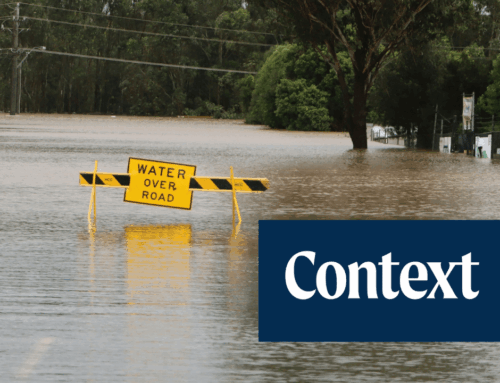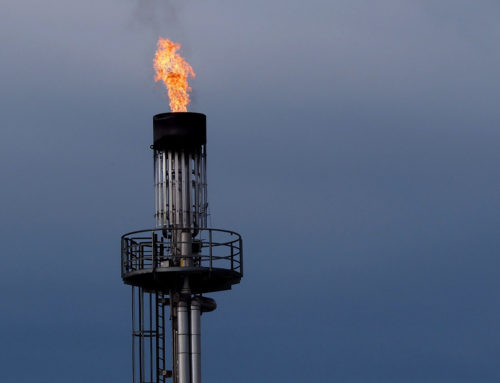Sharp differences emerged Thursday among participants in a first-ever national forum to discuss the future of leasing and permitting regulations on federal lands and waters.
The U.S. Interior Department hosted the online event to gather input on potential regulatory reforms governing oil and gas development on public property as President Joe Biden’s administration considers new policies to combat climate change. The forum included experts from a broad range of industry, labor, environmental, tribal and other organizations from across the nation that the Interior Department invited to share their views on policy changes going forward.
The feedback will help shape an interim report Interior will release this summer with recommendations on how to best manage federal lands in the future.
But while discussion remained cordial, the event revealed how deeply divided the country remains on the issue of oil and gas development, with environmental representatives calling for an outright ban on all new leasing and permitting on federal lands, and industry warning that such actions would cause immense economic damage across the nation.
The differences among participants reflect a vibrant national debate that’s gaining force in Washington, D.C., and in states across the country, particularly in New Mexico, where the majority of oil and gas production occurs on federal lands.
Need for reform
Interior officials didn’t take any position on the specific views shared by forum participants. But they clearly stated the need for substantial reform to federal leasing and permitting policies, some of which have been in place for more than a century.
Interior Secretary Deb Haaland, who took office last week after receiving Senate approval for her appointment earlier this month, said the time has come for significant change, following four years of accelerated oil and gas development on federal lands under former President Donald Trump.
“During the past four years, the Trump administration offered vast swaths of our public lands and waters for drilling, prioritizing fossil fuel development above all other uses on public lands and waters,” Haaland said in opening remarks to forum participants. “The potential impacts to people, water, wildlife and climate were deliberately ignored, something the courts continue to address. While some corporations profited, taxpayers were shortchanged and some Americans’ voices were not heard.”
Haaland said “an act now, think later approach” to managing public lands has left a legacy of pollution with local communities paying the price. And as the country works to tackle the climate crisis and transition to a clean energy economy, policymakers must focus on future generations.
“Now is the time for us to have a frank conversation about the future of our shared resources,” Haaland said. “I’ll not pretend that this moment of reflection will be easy, or that we have all the right answers, but I can promise you that I’ll listen to you. I’ll be honest and transparent throughout the process.”
Haaland didn’t address how long the government’s current “pause” on federal oil leasing will remain in effect, which Biden ordered in January to allow the Interior Department time to conduct a comprehensive review of policies before deciding on future regulations. But she said fossil fuels will continue to play a major role in America for years to come. And she stressed that the moratorium has no impact on permitting and development of existing leases.
Industry pleas
Industry, however, remains concerned that the pause could be extended, or possibly converted into a permanent ban on new leasing and permitting.
Frank Macchiarola – the American Petroleum Institute’s senior vice president for policy, economics and regulatory affairs – said a ban would have major consequences for the national economy.
“The oil and gas industry is essential to post pandemic recovery and growth,” Macchiarola told Interior officials during the forum. “… Policies aimed at slowing or stopping production would be harmful to national security. I urge you to expedite the review.”
Macchiarola said the industry as a whole is already working to lower carbon emissions, and the Biden administration’s goals of combatting climate change can be achieved in cooperation with oil and gas producers. In fact, Thursday morning, API released a new “climate action framework” outlining key initiatives that industry will pursue as new national climate policies are developed.
That includes support for “carbon pricing” – either through a new carbon tax or cap-and-trade program – to incentivize industry to lower emissions and develop clean energy alternatives. That’s something API adamantly opposed in the past, but now promotes as a market-based initiative to avoid potential carbon-reduction mandates under consideration in Congress.
API’s new framework also calls for more funding to develop clean energy technologies like carbon capture and hydrogen for transportation and electric generation, and federal regulation to lower methane emissions from natural gas production.
Such initiatives would be far more effective in lowering emissions than blocking oil and gas development on federal lands and waters, which would only encourage other countries with weaker carbon regulations to increase fossil fuel production to satisfy market demand, Macchiarola told the forum.
Green hardline
In contrast, representatives from the Natural Resources Defense Council and Earthworks called for an outright ban on all new oil and gas leasing and permitting on federal lands and waters.
Nathalie Eddy, Earthworks field advocate for Colorado and New Mexico, called methane and other emissions “business as usual” for industry, which can only be controlled by ending oil and gas development on federal lands.
“We should permanently halt all new licensing and permitting,” Eddy said. “… Urgent action is needed (given) the reality of unfettered and uncontrolled pollution. No amount of regulation will stop this harm.”
NRDC Lands Director Sharon Buccino said it’s within Interior’s discretion to cease industry development on public lands.
“It’s an abuse of that discretion to issue new leases,” Buccino said.
Those statements, however, contradict the position of many other mainstream environmental groups, which support regulatory reform, not a ban.
Four other national advocacy organizations, for example, held a press conference on Wednesday in advance of the forum to call for specific reforms to better compensate the public for use of public resources and protect federal lands. That includes an increase in royalty rates and fees charged to oil and gas companies, and strict regulations on methane emissions, among other things.
“No one believes it’s realistic to just turn off oil and gas,” Autumn Hanna, vice president for Taxpayers for Common Sense, said during the news conference. “The transition to clean energy will take years. … What we want is serious reform, updating policies and getting a fair return for taxpayers.”










